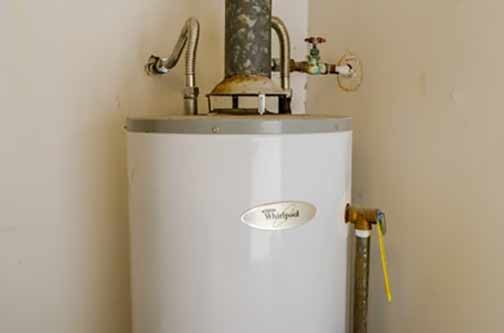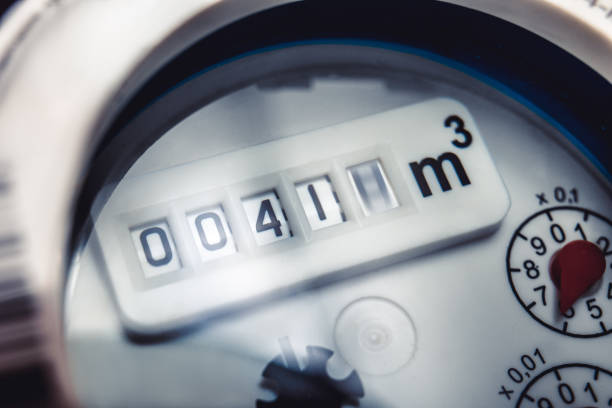Monitoring Decreased Efficiency and Higher Utility Bills
One of the earliest and most telling signs that you may need a water heater replacement in Burr Ridge is a noticeable decrease in system efficiency, accompanied by a spike in your utility bills. If your water heater is struggling to perform its basic functions, such as heating water adequately or sustaining the desired temperature, it’s likely working harder than ever before, consuming more power in the process. This unnecessary strain on your appliance can lead to exorbitantly high energy expenses.
Keep an eye on your monthly energy statement. A significant increase, not explained by seasonal changes or an increase in household usage, can indicate your water heater is no longer running efficiently. Besides recognizing higher costs, you should also be aware of any drop in performance. For example, if you need to wait longer for hot water or if the duration of the hot water supply has decreased, it’s time to consider replacement options.
Understanding the Causes of Inconsistent Water Temperature
Are you frequently experiencing cold showers despite setting your water heater to a specific temperature? Inconsistent water temperature is a prime indicator that your water heater is nearing the end of its lifecycle. Although various issues might lead to temperature fluctuations, aging components within the water heater are often the root cause.
Components such as thermostats, heating elements, or burners within your water heater deteriorate over time, leading to irregular heating. Regardless of whether the problem lies with a gas or electric unit, inconsistent performance should not be overlooked. If you’ve had recurring issues with water temperature despite multiple repairs, it might be more cost-effective and reliable to replace the entire unit rather than continuing to fix individual parts.
Identifying and Interpreting Strange Noises from Your Water Heater
Another common sign that your water heater is due for replacement is the presence of unusual noises. It’s completely normal for your water heater to make a low hum when in operation, but if you start hearing loud bangs, pops, or rumbling, these sounds are cause for concern. Such noises typically emanate from sediment buildup at the bottom of the tank.
Over time, minerals from the water supply can settle inside the tank, hardening and creating layers of sediment. When water gets trapped under these sediment layers, it heats up and eventually causes loud popping or banging sounds. Ignoring these noises can lead to further damage, including ruptured tanks. Therefore, timely replacement of the water heater is crucial to avoiding potential hazards and ensuring uninterrupted access to hot water.
Recognizing Visible Rust and Corrosion on Your Water Heater
Rust and corrosion are clear indicators of a deteriorating water heater. Inspecting your unit for signs of rust around the tank or on the water inlet and outlet pipes can reveal the appliance’s internal condition. Water heaters, especially those that are older, are more susceptible to rust and corrosion due to prolonged exposure to water and its minerals.
If you detect rusty water when you turn on the hot water tap, it’s likely that the inside of your tank has started to decay. Even though some level of corrosion can be fixed by replacing the anode rod, extensive rust indicates a more serious issue that usually necessitates a full replacement. Don’t wait until rust has visibly spread; act promptly to prevent leaks and further damage.
Detecting Leaks and Excess Moisture Around the Unit
Leaks are among the most urgent signs that you need a water heater replacement. Regularly inspect your unit and the surrounding area for any signs of water leakage or excessive moisture. Even the smallest leak can quickly escalate into a larger problem, leading to water damage in your home and potential mold growth.
Drips and pools of water near the base of your water heater, or any dampness on the exterior surface of the tank, should immediately be addressed. Sometimes, leaks can originate from the connections or valves, but if the fault lies within the tank, replacement is the safest option. Modern water heaters are designed to be more durable and leak-resistant, making the investment worthwhile in the long run.

Knowing When Your Water Heater Is Older Than a Decade
Age is a critical factor in evaluating the need for a water heater replacement. The average lifespan of a traditional water heater is approximately 8 to 12 years, depending on usage and maintenance practices. If your unit exceeds this timeframe, it’s more susceptible to breakdowns and inefficiencies, even if it’s still functioning without significant problems.
As water heaters age, their components deteriorate, rendering them less effective and more prone to leaks and failures. An aging water heater is more likely to cost you extra in terms of repairs and utility bills due to the old technology it uses. For these reasons, it’s financially prudent to replace a water heater that is older than a decade with a newer, more efficient model.
Identifying the Need for Frequent Repairs
Another significant indication that your water heater may require replacement is the frequency of repairs. If you find yourself calling a professional for repairs more often than usual, it’s time to reassess whether it’s worth investing in continuous fixes. While occasional repairs are expected, a water heater that’s regularly breaking down represents a major inconvenience and escalating costs.
Frequent repairs not only strain your wallet but also highlight the potential for future failures. Instead of consistently facing reliability issues, replacing the water heater can offer peace of mind with improved performance and dependability. Opt for a modern unit that can offer you long-term benefits without the hassle of constant outages.
Observing Discolored or Foul-Smelling Water
One often unnoticed yet critical sign of a failing water heater is the quality of the water it produces. If you start to notice discolored water or a foul odor, it’s usually a sign that your water heater’s interior has deteriorated significantly. Rust, sediment, or bacterial growth inside the tank can alter the appearance and smell of your hot water, making it unsafe for use.
Always take discolored or foul-smelling water seriously. Running annual inspections and flushes can sometimes remedy these issues temporarily. However, persistent water quality problems usually indicate that the tank is compromised, and a replacement is the most effective solution to restore clean and safe hot water in your home.
Spotting Signs of Mineral Buildup in Your Water Heater
Mineral buildup is a common problem that affects water heaters, especially in areas with hard water. Over time, minerals can accumulate inside the tank and on heating elements, reducing the system’s efficiency and potentially leading to significant damage. Signs of mineral buildup include a decrease in hot water supply, popping noises, and higher energy bills.
Regularly flushing your water heater can help manage mineral buildup, but if the problem becomes severe, it may be time for a replacement. Modern water heaters come equipped with advanced features that minimize the effects of mineral buildup, offering longer-term reliability and efficiency. Upgrading to a new model can save you the trouble of dealing with water hardness issues constantly.
Speaking with a Burr Ridge Plumber for Assessment
When in doubt, it’s always beneficial to speak with a professional to assess your water heater’s condition. Experienced Burr Ridge, IL plumbers can provide detailed inspections and offer appropriate recommendations based on their findings. They can help you determine whether your unit can be repaired or if it’s more practical to invest in a replacement.
A professional assessment can uncover underlying issues that may not be apparent to the untrained eye. Plumbers can also guide you through the selection of a new water heater, ensuring it meets your household’s specific needs and aligns with energy efficiency standards. Relying on expert advice can help you make informed decisions, ultimately leading to a more reliable and efficient hot water system.
Exploring Modern Water Heater Options
If replacement is the recommended course of action, exploring modern water heater options is the next step. Today’s water heaters offer a range of benefits, from improved energy efficiency and advanced safety features to enhanced performance capabilities. Tankless water heaters, for example, provide continuous hot water on-demand and occupy less space compared to traditional tank systems.
Electric models have also seen advancements, with features such as smart controls allowing for better energy management. When selecting a new water heater, consider factors like tank capacity, energy source, and technological features that best suit your home and lifestyle. Researching and investing in a modern water heater ensures you receive long-term value and reliability from your new appliance.
Conclusion: Making the Decision to Replace Your Water Heater
Recognizing the signs that indicate the need for a water heater replacement is essential for maintaining an efficient and reliable hot water system in Burr Ridge, IL. Factors such as decreased efficiency, inconsistent water temperature, strange noises, visible rust and corrosion, leaks, age, frequent repairs, discolored water, and mineral buildup are key indicators that your water heater may be nearing the end of its useful life.
By staying vigilant and seeking professional advice when necessary, you can make informed decisions about replacing your water heater. Investing in a modern, energy-efficient unit not only enhances your home’s comfort and functionality but also contributes to long-term savings and peace of mind.
—
In need of a water heater replacement in Burr Ridge, IL? We can help! Contact us at 708-801-6530 or by form below:
[gravityform id=”1″]


